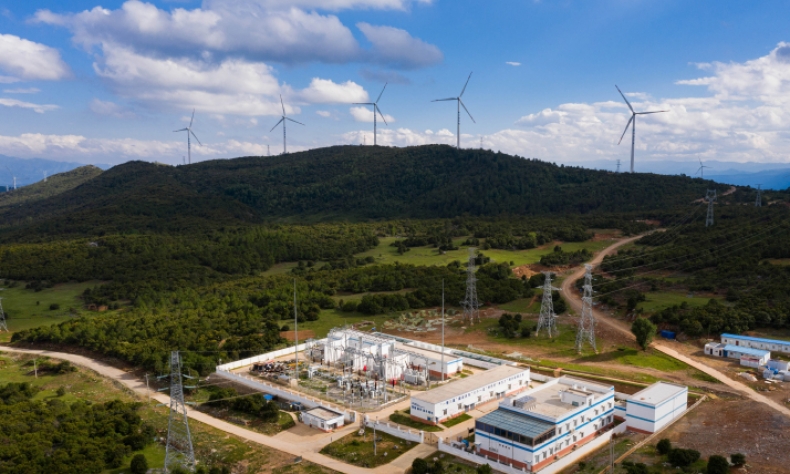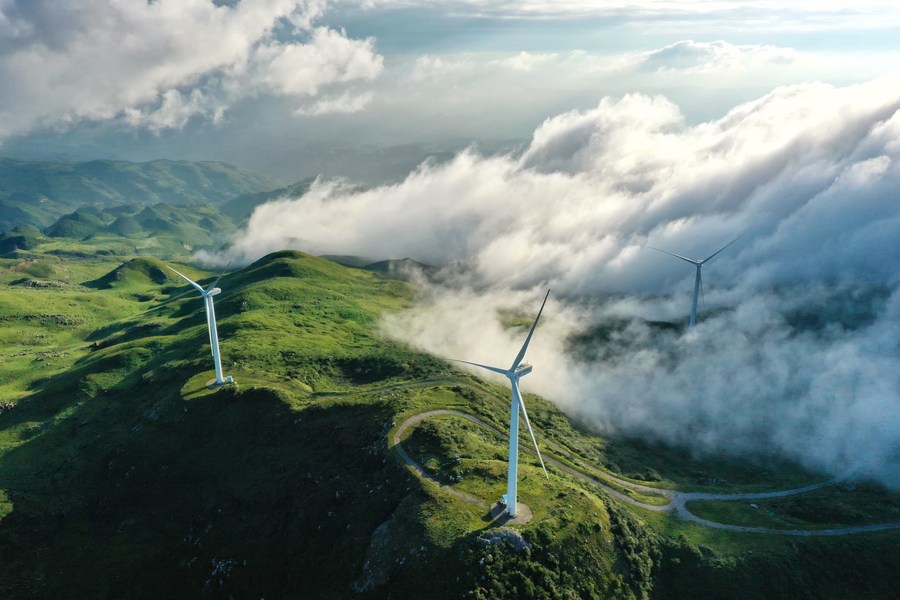Why Some People Turn a Blind Eye to Climate Change

The reason that really stops people from accepting climate change is their own benefit and interest.
Climate change continues to be a global governance problem. According to data from the U.S. National Oceanic and Atmospheric Administration, the global atmospheric carbon dioxide concentration reached 417.7 parts per million (ppm) in January, compared to 316 ppm in 1960.
We see daily news reports about the primary and secondary effects of climate change, but many people, including former U.S. President Donald Trump, deny climate change or refuse to take any necessary action. Polarization over the issue exists and leads to emotional reactions and social divisiveness. Why have groups of people and governments turned a blind eye to climate change for so long and are only now starting to respond?
It might be overly simplified to criticize the politicians’ short-sightedness and to think that people who deny climate change are scientifically illiterate. Emotional reactions, no matter which side of the divide they’re on, are the driving force behind polarization. Understanding the various roots leading to this blindness and exploring possible solutions are critical to address the issue.
A paradox
Blindness emerges firstly due to a lack of scientific knowledge and the tough processes of addressing the substantive reality of climate change. Human beings first realized climate change and its harm in 1957, when American scientist Roger Reveille discovered that the ocean couldn’t absorb all the carbon dioxide released by human production activities. Therefore, carbon dioxide in the atmosphere would rise sharply. Subsequently, the scientific community debated this issue, and climate change and its negative externalities weren’t generally recognized until the 1980s.
However, in most cases, blindness refers not only to the people who don’t know about climate change but particularly to people who refuse to accept what they’ve seen. It appears weird but reflects the limitation of human social cognitive processes.

Extreme climate events frequently happen, but for any one specific place, the possibility of such activity remains low. Based on the theoretical framework of human decision-making behavior in uncertain situations, which was jointly studied by Israeli psychologists Daniel Hahnemann and Amos Tversky, we find that people usually “see” facts and make decisions based on their experiences and expectations. In other words, people might refuse to accept climate change just because the related facts conflict with their intentions. “Allais paradox” is the phrase to describe the unintelligible choice.
Polarization toward climate change is deeply rooted in such a paradox; the reason that really stops people from accepting climate change is their own benefit and interest.
Economic costs
When we move our view from a domestic to a global level, another concern appears: the silence around climate change. After the hazards of climate change were clarified, from the mid-to-late 1980s to the mid-to-late 1990s, many governments and enterprises avoided discussing this issue.
Air is a borderless and global public resource. Countries that do not take actions to combat climate change can still enjoy the benefits of improved air that result from the policies adopted by other governments without paying the corresponding costs. Therefore, the free-rider problem in addressing climate change involves the fairness of countries enjoying the decisions of their global neighbors without contributing anything domestically.
The only way to solve this problem is to propose laws and regulations that encourage those governments that refuse to accept climate change or that do not contribute to addressing it to be positive actors. It remains to be seen whether countries and governments will cooperate in this era of anti-globalization and a new cold war mentality.

Moreover, the economic costs of implementing climate action paid by states are different. Intrinsically, the right to carbon emissions is the right to development, and limiting carbon emissions means restricting one country’s economic development. For individuals, the right to carbon emissions is the right to enjoy comfort, and limiting carbon emissions means sacrificing an easier life. That’s because, in the mid-1990s, more than 85 percent of the energy consumption came from three types of carbon-emitting fossil fuels—oil, coal and natural gas. Relatively clean hydropower and nuclear power accounted for less than 15 percent, and renewable energy such as wind and photovoltaic (PV) power accounted for less than 1 percent.
It’s difficult to increase hydropower capacity due to the limitation of the natural environment. The disastrous accidents of Chernobyl, Three Mile Island and at other nuclear power plants have slowed the expansion of nuclear power. And the high cost of renewable energy limited its wide application.
If energy demand growth remains strong, carbon emission reduction policies will inevitably lead to insufficient energy supplies. Therefore, in the absence of low-cost alternative energy sources, their implementation will encounter difficulties. Although developed countries have indeed reduced carbon emissions in recent years, more of them have achieved that through the transfer of energy-consuming industries overseas, which has also caused the problem of “carbon leakage.”
However, with the development of science and technology, the cost of renewable energy has dropped significantly, allowing the world to see the feasibility of carbon emission reduction.
Renewable energy has become one of the low-cost power sources. Wind and PV energy accounted for 24 percent of China’s installed power generation capacity in 2020. It’s expected that by 2060 this proportion will be close to 80 percent, and coal power will be replaced entirely, which will give the rest of the world a smart solution to this problem.
In more than five decades, collective action on climate change at global level has become clearer. The process is complicated and costly; however, the efforts to reduce carbon emissions are being consolidated and will gradually change our life philosophy.
 Facebook
Facebook
 Twitter
Twitter
 Linkedin
Linkedin
 Google +
Google +










